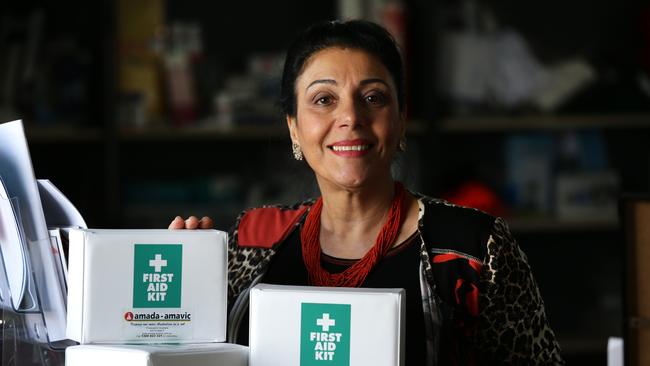Ross Greenwood: Success from the scrap heap
You buy damaged goods and you know the risks. The price might be cheap, there’s rarely a warranty and you have to inspect the items carefully. The same logic applies to buying a businesses from the scrap heap.

YOU buy damaged goods and you know the risks.
The price might be cheap, there’s rarely a warranty and you have to inspect the items carefully. The same logic must apply to buying a businesses from the scrap heap.
In the three months to the end of March, 2506 businesses hit the wall. Of these 826 were court liquidations, 1058 were creditors liquidations, 273 were receiverships and 349 were voluntary receiverships.
Some of the receiverships would not doubt have been viable businesses whose owners had too much debt. In the right hands they could be saved.
In newspaper classified advertisements you will sometimes see the “business for sale” column. In many cases these are being sold by receivers or administrators who have legally entered the business to collect the maximum return for banks and creditors.
But those “for sale” notices can also be an opportunity for a smart business person to snap up a bargain.
There are a few places to look. The corporate regulator ASIC discloses a list of insolvency actions through its site https://insolvencynotices.asic.gov.au/. But perhaps best are the Business For Sale sections of the individual insolvency and corporate restructuring firms: Ferrier Hodgson, Korda Mentha, McGrath Nicols, SV Partners, PwC, KPMG, Deloitte and Ernst & Young among them.
A warning: use your contacts to find out the real story behind these businesses. The information on these websites can be sparse and hard to access. Good contacts within the corporate restructuring sector and direct relationships can cut through.
Ian Purchas from SV Partners says administrators, receivers and liquidators have a legal obligation to realise the best possible price for the asset and to deliver in a timely manner the best outcome for creditors of the failed business.
He says one of the first things to identify when considering buying a distressed business is whether there is a key person who owned it without whom the business would fail anyway. He then says, in most cases, do not buy the company itself.
In buying the company you also buy its liabilities (including staff), which could quickly put you into the same trouble as the previous owner. Far better to buy the assets alone.
But there are times when buying the company structure is worth considering, especially if there are considerable tax losses that you can use to offset profits in your own business. But again, you would have to satisfy yourself about the liabilities you are taking on.
Purchas also says that, if you do buy a company for its tax losses, then at the very least wait for the Deed of Company Arrangement to assure yourself no debt-skeletons will dive out at you down the track.
Finally, just because a business has gone broke does not mean will be a bargain.
“It is fair to say if there’s an offer of $50,000 to buy an asset, but it’s due to settle in six months, the administrator might accept $40,000 if it can be settled in six weeks,” Purchase says.
A FIRST-AID KIT FOR SUCCESS
GRACE Condon knows plenty about first aid. Her company Amada Amavic is one of the biggest first-aid-kit suppliers in Australia. And the company itself has in the past required “first aid” on its own balance sheet.
Amada Amavic, based in Greenacre, began 66 years ago when four chemists developed a hand cream for miners. During construction of the Snowy Mountain Scheme decades ago Amada supplied work crews with first aid and medical supplies.
Today it has supply contracts with the likes of the Australian Red Cross, the Royal Flying Doctor Service, Emergency Services, Qantas, Volkswagen, Delta Electricity, Brookfield Multiplex Construction and Grocon Construction NSW.
But it could have been different.
Grace’s husband Terry died seven years ago. He was the backbone of the business, having started work for a chemist at the age of 14 and going on to run the company. Without him, Grace and the business struggled. She sold part of the business to investors but it continued to struggle.
Grace worried Amada might fall into bankruptcy, so she bought back in.
“I didn’t want Amada, after 66 years, to die in disgrace. I wanted to pay every creditor out. And I did.”
Many advisers doubted her wisdom. But now she’s starting to see the light.
“There are months when we struggle. But we do some enviable figures because we are a little company.”



